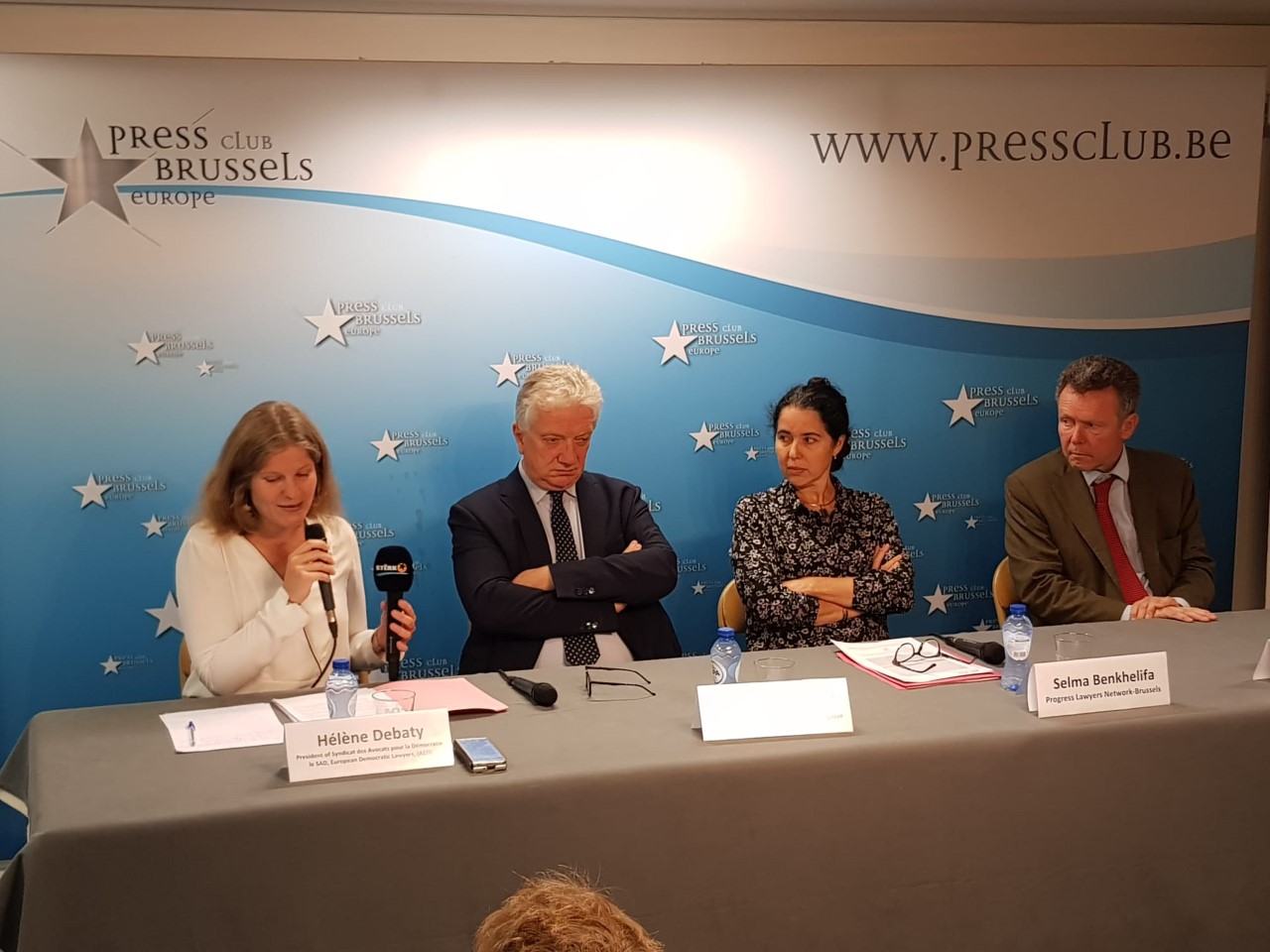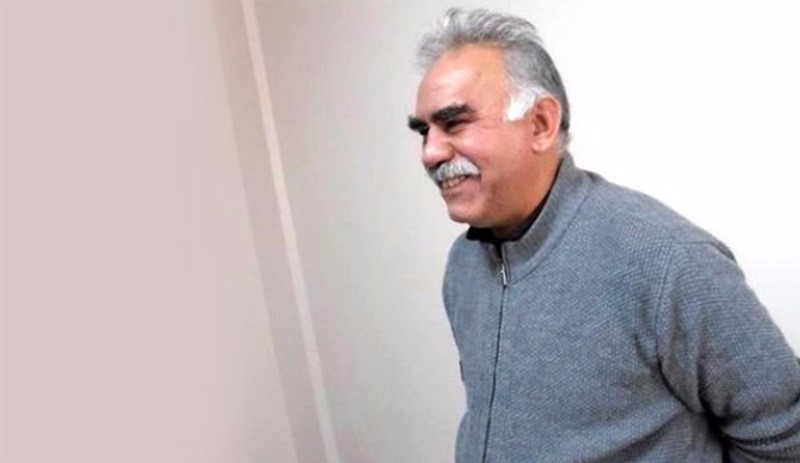Lawyers from around the world announced last week at a press conference at Press Club Brussels Europe that they have applied to the Turkish ministry of Justice to ease the restrictions imposed on Abdullah Öcalan, the founder of the outlawed Kurdistan Workers’ Party (PKK), and allow his lawyers and family to visit him.
The letter was signed by hundreds of lawyers from 22 countries. Öcalan was on his run in exile when he was abducted in Kenya in 1999 by the Turkish intelligence agency with the support of foreign agencies. He was brought to Turkey and sentenced to death which was commuted to life imprisonment after the death penalty was abolished in Turkey.
As previously reported, he is imprisoned at the Imrali island prison in the Marmara Sea close to Istanbul, where he is held in a solitary cell. For the first 10 years he was the only prisoner and guarded by hundreds of soldiers. During most of the hours he is held in solitary confinement. Since 2011, he has hardly been allowed to see his lawyers.
International law organization have raised his case several times. In April 2022, Lawyers for Lawyers and the European Association of Lawyers for Democracy and World Human Rights (ELDH) wrote to the European Committee for the Prevention of Torture and Inhuman or Degrading Treatment or Punishment (CPT), asking the committee to organize a visit to the prison.
In particular they asked the committee to examine the Turkish government’s refusal to permit lawyers to visit their clients who are held under insolation in the Imrali prison. Besides Öcalan, the right of three other prisoners to meet their lawyers is also denied.

Press conference at Press Club Brussels Europe, 14 September 2022
According to the speakers in the panel in Brussels, a special and discriminatory form of isolation has been applied in Imrali prison since 1999. During several years a ban on lawyer visits has been applied and is still in force.
The CPT was set up by the Council of Europe and builds on Article 3 of the European Convention on Human Rights which provides that, “No one shall be subjected to torture or to inhuman or degrading treatment or punishment”.
In its latest report from a visit to Turkey in May 2019, the committee urged the Turkish authorities to take the necessary steps to ensure that all prisoners at Imrali prison are effectively able, if they so wish, to receive visits from their relatives and lawyers. An end should be put to the practice of imposing a ban on family visits for ‘disciplinary’ reasons.
Abdullah Öcalan’s state of health has raised concerns in recent years. Thomas Schmidt, Co-Secretary General of ELDH, told The Brussels Times that there is no up-to-date information about Öcalan’s health situation. “He is banned from meeting his family and lawyers. There has been no contact with him since a brief telephone conversation in March 2021.”
Thomas Schmidt added that there has been no positive change in Öcalan’s prison conditions in recent years. “Besides a period in 2019, lawyers have not been allowed to meet him. It’s not known if the letters sent to him have been received. He is not allowed to write letters.” In his last phone call, Öcalan told his brother, ‘I want to meet my lawyers’.
Can the EU or its external action service (EEAS) do more for Öcalan?
Thomas Schmidt referred to a written response in April 2019 by Commissioner Johannes Hahn, on behalf of the European Commission, about the prison conditions in Turkey.
According to the response, the Commission has taken note of the “serious concerns about the virtual absence of contacts between prisoners and the outside world” in the Imrali prison. The Commission has repeatedly called upon Turkey to publish the CPT reports and to address their recommendations, “in line with its stated zero tolerance policy on torture and European standards against isolation”.
But Thomas Schmidt expects more from both the EU and the CPT. EU’s foreign policy chief, High Representative Josep Borrell, is familiar with the human rights situation in Turkey and is expected to call for an improvement in Öcalan’s prison conditions.
The CPT has made several attempts in recent years to improve the detention conditions in Imrali. “However, the ban on lawyer visits to Öcalan should be a reason to conduct a new investigation in Imrali.”
“We urge the CPT to recommend that necessary action is taken by the authorities and that the ban on lawyer visits if lifted,” Thomas Schmidt concluded. “In view of the aggravation of the conditions since CPT’s last visit more than two years ago, it should visit the Imrali prison again and prepare a report on the visit.”
M. Apelblat
The Brussels Times

